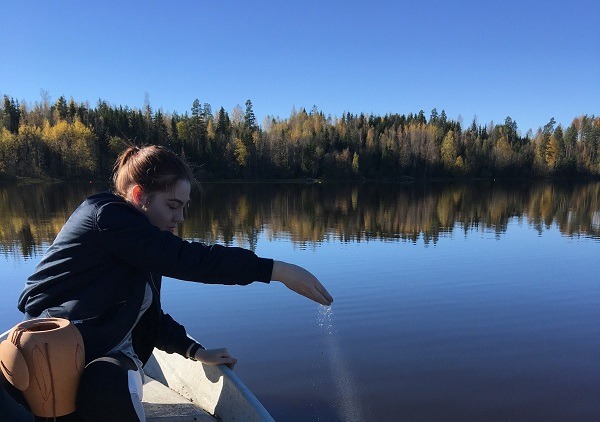As cremation becomes a more prevalent way to celebrate loved ones’ passing, more and more of us are turning to say goodbye to loved ones in eco-friendly ways to reduce the environmental toll of traditional funerals.
In particular, there has been a rise in the popularity of simple cremation no service options offered around the world, where fewer relatives are in attendance during the cremation.
Simple cremation services also benefit from being less expensive than traditional funerals and offer a respectful service where the overall environmental impact is less than a conventional funeral.
Some people, however, want to take things further, looking for alternative options within the cremation process. These ‘green cremations’ are a newer aspect of the larger trend of cremations, seeking to find eco-friendly alternatives to the traditional cremation method favouring less harmful processes.
Eco Friendly Cremations
Also known as eco cremations, this is the process through which the traditional application of harmful chemicals in the embalming process is removed. Instead, this process is either skipped within direct cremations so that no chemicals are used.
The embalming process can be skipped by request during the cremation organisation; just contact your cremation provider to ensure that should you wish to remove the use of chemicals, you make them aware of this preference.
Bio Cremation
When the term ‘eco cremation’ or ‘greener alternative’ is mentioned concerning cremations, the first thought usually goes to a new technique called alkaline hydrolysis. This is one of the most promising ‘green’ alternatives to the regular use of extreme heat within traditional cremations.
Instead, a solution of water and potassium hydroxide is used to offer an environmentally gentle way to dispose of human remains. This is heated to 350 degrees, gently dissolves natural tissues and leaves behind sterile liquid and bone fragments.
This method is said to use 1/8th of the energy required for traditional cremations and removes the emission of mercury that occurs with the use of flame.
However, because this is such a new concept, it’s available mainly in America, and even then, there are states where this is not yet a legal practice. This is something that you would need to check with your local provider.
Recycling
One of the easiest ways to make the cremation ‘greener’ is to repurpose any medical implant devices, such as pacemakers, dental prosthetics, and medical prosthesis of any kind.
The crematorium may require a contract with a specialised recycling facility to do this; however, if this applies to either yourself or a loved one during the organisation process, it’s worth looking into.
Medical equipment should never be sold back for re-use, but instead, it can be melted down and repurposed. This is not always possible depending on where you live, so most reputable cremation providers will disclose their procedures during the organisation.
It should definitely be something to ask if you do not see this information in your cremation package!
Easy Tips To Make A Cremation ‘Greener’
While there are more significant requests and changes to make to a cremation, there are also simple ways to make this process more environmentally friendly.
- Choose a casket or cremation container that is sustainably sourced or made – avoid toxic materials and instead opt for something like recycled cardboard
- Instead of a traditional urn, opt for a biodegradable one if you plan on burying the cremains
- Ask about and authorise your provider to remove and recycle any medical parts and metals
- Scatter the ashes in an authorised and suitable location – or at sea
- Consider bio cremation if you are in an area this is offered
- Select a cremation provider that uses energy-efficient furnaces and filtering systems
Of course, the impact of human disposal, even in the most environmentally friendly way, will never remove all impact – but there are options available to reduce the toll of the process. And when considering the impact of traditional funerals, cremations are significantly less damaging to the environment.
Whichever method you choose, always ensure that you speak to your cremation provider and ask the questions you need to ensure that either yourself or your loved one get the most suitable cremation.

